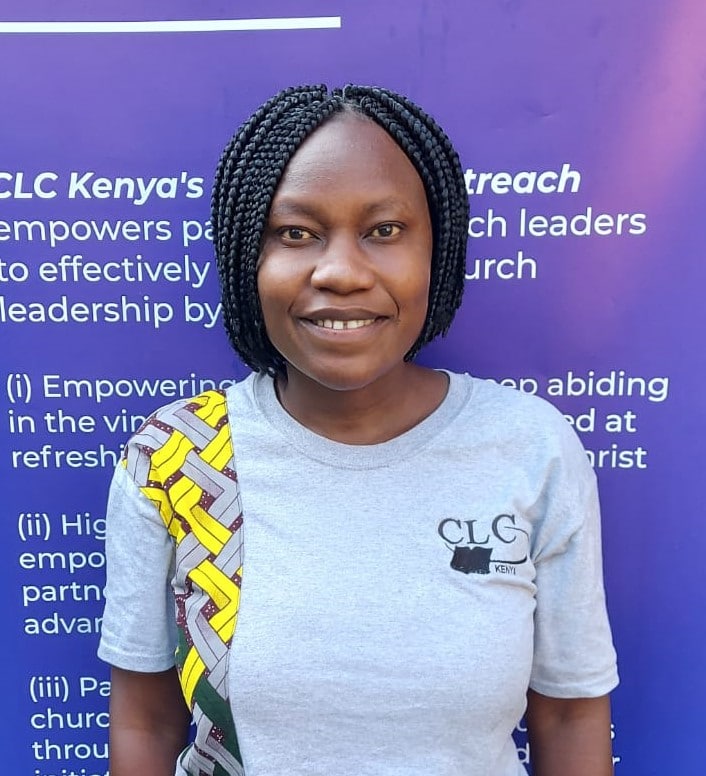Today, we explore a long-term strategy aimed at enhancing the adoption of African-authored content.
The first crucial step is to ensure that our books meet international publishing standards. This is the core mission of ACABA. We are committed to continuous learning and improvement, ensuring that we eliminate low-quality editorial work and design excellence that easily hinder the dissemination of God’s message in our books. By maintaining required publishing standards, we can effectively convey the rich messages and values embedded in African literature to a global audience.
Remember: There is a revival coming from Africa, perhaps it’s already here. Our part in that revival as African Christian authors, is to preach the Gospel using our books. Study show that *95% of population in Europe no longer go to Church. It is possible that missionaries will be sent from Africa to the rest of the world. We see our books as part of the missions tools.
CLC Kenya/ACABA’s Long Game Strategy: Start with the Children and young Adults
In the last decade, African Christian authors have embarked on a journey to get both Africa and the world to read African-authored books.
While it is a painfully slow project, this long game strategy is rooted in a deep understanding of cultural heritage, the power of storytelling, and the pivotal role of education.
At the heart of this mission lies a focus on children and young adults, recognizing that the foundation for lifelong reading habits and appreciation for African literature begins in childhood.

Case Study: Nestle’s Introduction of Coffee in Japan
Alternative: https://www.rediff.com/news/column/how-nestle-got-japan-to-drink-coffee/20200718.htm
Step 1: Why Your Book Matters, Regardless of the Audience
You might be thinking, “My book focuses on marriage, parenting, adult believers, leadership etc not children. How does this conversation apply to me?”
The truth is, your content is more relevant to this discussion than you might realize. Any material, regardless of its primary audience, can be adapted to educate and inspire children.
Example: Stepping Down Content for Younger Audiences:
Marriage:
Concepts of love, commitment, and partnership can be simplified and illustrated through stories and activities that children can understand and appreciate. For example, stories of teamwork and friendship can introduce the idea of working together and supporting one another, fundamental to a successful marriage.
Parenting:
Principles of responsibility, care, and guidance can be adapted into lessons that teach children about family values and relationships. Through relatable scenarios and role-playing, children can learn about the importance of caring for others and being responsible members of their families.
Christian Living:
Faith-based teachings and moral lessons can be presented in a way that engages and educates young minds. Simplified Bible stories, interactive games, and age-appropriate discussions can help children grasp spiritual concepts and moral values.
Leadership:
The principles of leadership, such as integrity, courage, and decision-making, can be illustrated through stories of young heroes, classroom activities, and group projects. These activities can help children understand and practice the skills of good leadership.
Business:
Basic business concepts, like entrepreneurship, money management, and teamwork, can be taught through fun, hands-on activities such as running a small class project or managing a pretend store. These experiences can introduce children to the world of business in a tangible and enjoyable way.
Fiction:
Creative storytelling and imaginative play can be used to introduce children to various genres of fiction. Interactive reading sessions, creative writing workshops, and storytelling games can help children develop a love for literature and enhance their creative thinking.
Biography:
Biographical stories can be adapted to highlight key events and achievements in a way that resonates with children. Illustrated books and dramatized readings can bring these stories to life, inspiring children with real-life examples of perseverance and success.
Poetry:
Poetry can be introduced to children through simple, rhythmic verses and playful language activities. Engaging them in writing their own poems, reciting, and performing can make poetry an enjoyable and expressive outlet for their creativity.
By repurposing your content for children, you contribute to a broader mission: instilling foundational values and knowledge in the next generation. This approach not only broadens the reach of your work but also ensures that the core messages of your book can shape the lives of young readers, preparing them for the future.
In summary, every book, regardless of its initial target audience, holds the potential to be a valuable resource for children. By adapting your content, you play a vital role in the long game strategy of increasing the uptake of African-authored content, fostering a culture of reading and learning from a young age.
Step 2: Creating Culturally Relevant Content
As African Christian authors, we are encouraging you to keep writing books that reflect the richness of African cultures and values. By infusing your stories with familiar settings, characters, and moral lessons, you create content that resonates deeply with young readers.
This cultural relevance not only fosters a sense of pride and identity but also makes reading more relatable and enjoyable for African children.
The Power of Relatable Stories for Children
Growing up, I read about snow at Christmas without ever seeing it in my entire childhood. The stories were captivating and enjoyable. However, imagine the impact of a story about the whole extended family traveling from all over to attend Christmas upcountry. Aunties cooking chapati and uncles roasting meat at grandpa’s home—wouldn’t that be more relatable and real for a Kenyan child?
Relatable and Real
At CLC Kenya, we recognize the importance of relatable stories for our children. That’s why we started the Mama Africa Book Box, a reading and writing club for children. This initiative aims to balance cultural grounding with global exposure by reading two books each month:
1. One by an African Author: This keeps the kids grounded and proud of their African heritage. Stories that reflect their own experiences, traditions, and environments foster a strong sense of identity and belonging.
2. One by an International Author: This ensures our children are exposed to the global village, broadening their horizons and understanding of different cultures and perspectives.
Why Relatable Stories Matter
Cultural Identity: Stories that reflect familiar settings and experiences help children understand and appreciate their own culture. They see their lives, families, and traditions represented in the narratives, which fosters pride and a strong sense of identity.
Engagement: Children are more likely to engage with and enjoy stories that they can relate to. When they see characters and situations similar to their own lives, it makes reading more enjoyable and meaningful.
Empathy and Understanding: While relatable stories are crucial, exposure to international literature helps children develop empathy and understanding of different cultures. This balance nurtures well-rounded individuals who are both proud of their roots and open-minded about other people’s cultures.
At the end of the day, we desire that our children’s lives be drawn to God.
Step 3: Partnering with Schools, Churches and Child-Focused Ministries/Organizations
Recognizing the influential roles that schools, churches and other organizations play in children’s lives, African Christian authors forms strategic partnerships with educational and religious institutions. We desire to avail your books and resources to schools and Sunday schools, ensuring that our literature reaches a broad audience.
Through book fairs, reading programs, and author visits, we engage children directly, fostering a love for reading from an early age.
Step 4: Leveraging Technology and Social Media
In the digital age, African Christian authors are embracing technology to reach a wider audience.
We encourage you to utilize social media platforms, e-books, and interactive websites to make your books accessible to children, parents and believers globally. This can be through online storytelling sessions, virtual book clubs, and interactive reading apps to provide innovative ways to engage young readers and promote African literature.
A Call to Action: Sharing the Truth on Social Media
In one of the months when the internet world celebrates different gender orientations, I opened YouTube and found my homepage flooded with messages encouraging people to become whoever or however they feel.
I was distressed. I sat down on my sofa and questioned God, asking why He allows such things. I was upset with Him. If I were God, I would… but I am not God.
During my conversation with God, I heard the Holy Spirit clearly ask me, “Where are you?”
I responded, “I am here, Lord.” He asked again, “Where are you?”
It was at this moment I realized He was asking where my message was on YouTube or any other social media platform to share the TRUTH amid the confusing messages targeting our children and young adults.
That day, I opened a YouTube channel. I developed a social media strategy for Facebook and LinkedIn. I also received a helping hand—a God-sent hand—to manage the other platforms I had no interest in or knowledge of (X, Instagram, etc.).
It’s been a game of patience for 5 years, but by the grace of God, my weekly analytics on Facebook show a reach of 40,000 from my profile alone. Combining all platforms, including CLC Kenya and ACABA, we have a reach of about 200,000 every week.
Now, picture this: as we grow, if all 80 authors in this platform can reach 50,000 people each week, it means we can have a cumulative reach of 4 million every week sharing the Gospel of Jesus Christ.
If we add the authors from ACABA 2021, 2022, and 2023, then we are talking about a 16 million reach every week.
It’s doable, brethren! It requires a lot of work and patience, but get on social media and let’s preach the Gospel of Jesus Christ.
If from my personal reach of 40,000, one person gets born again, one marriage is saved, one child is rescued from a destructive path, one author is encouraged to keep writing for God, the Kingdom of God has won. I have won.
While I do get discouraged sometimes and wish for more significant results, like 1,000 people get saved every week, I remember that even one soul is incredibly important to God. It causes heaven to stop and celebrate because of just one (Luke 15:7).
Call to Action:
1. Repurpose your book for children. Reach out to me if you wish to get involved–roll up your sleeves and let’s get this done.
2a. Consider writing fresh content targeted to children (under 12), teenagers (13-20) or young adults (in college, university or just started working).
b. reach out to Jackline and enquire on enrolling your children to Mama Africa Book Box so they can join other children and teenagers to read and write for their generation.
3. Recommend your church, school or organizations that have interest in reading culture for children in Africa. Do the introductions and we shall pursue to engage.
4. Try your best to be engaged in social media platform of your choice. ACABA is doing its best to recommend young and affordable freelancers to help you manage the platforms. But we all need to be on because that is where the audience is.
Let’s keep trying our best!
Worth watching, especially for parents pic.twitter.com/k6gb2CMVqU
— Elon Musk (@elonmusk) February 18, 2024
If you have a ministry towards children, or are a parent, please watch this documentary: The War On Children
It’s a whole 2 hours but worth every minute.

Yours Sincerely,
Dr. Muthoni Omukhango,
National Director, CLC Kenya
Convener, ACABA
FAQs !
Have A Question? Talk to Jackline Ingasian - Programs Coordinator at programs@cblafrica.com or +254707463007

A Book’s Visibility Defined
Introduction As part of our value addition for the Award...
Read MoreSocial Media Unpackaged for Authors
What is social media? Social media refers to the means...
Read MoreAn Engaged Author: Bookselling Strategies
Authors who are more engaged in their books affect their...
Read MoreWhy Won’t My Book Sell? Bookselling Strategies
There could be several reasons why your book is not...
Read MoreAn Encouraging Word Makes the Heart Glad – Power of Reviews and Testimonials: Bookselling Strategies
Anxiety in a man’s heart weighs it down, But a...
Read MoreBookselling Infrastructure for Authors
Every author wants their book to be a success In...
Read MoreA Book’s Professional Pricing Calculator
Creating a professional pricing calculator for your book involves several...
Read MoreWhy Author’s Round Table?
The Authors Round Table is a pivotal monthly meeting designed...
Read MoreDevotionals by African Christian Authors
Welcome to a refreshing time from the Scriptures… as shared...
Read MoreHow to Make the Most From An Award Program: Bookselling Strategies
Our prayer is that you understand the heart behind ACABA....
Read MorePublicize Your Nomination and Award (Without Bragging): Bookselling Strategies
Being nominated for and/or receiving an award is an exciting...
Read MoreContent Creation for Social Media Marketing Campaign for Authors: Bookselling Strategies
Training on content creation for social media marketing campaigns is...
Read MoreThe Long Game Strategy for Increasing the Uptake of African-Authored Content
(This article is by Donna Partow – a million-copy bestselling...
Read MoreOwn A Shelf: Bookselling Strategy
Today we will continue with book marketing strategies. Remember our...
Read MoreUsing Accountability for Bookselling Success: Bookselling Strategies
Your authorship is a journey and you are here because...
Read MoreEvery Author Needs a Prayer Team by Donna Partow: Bookselling Strategies
(This article is by Donna Partow – a million-copy bestselling...
Read MoreIf Content is King then Consistency is Queen: Bookselling Strategies
Content is king because… It is the foundation upon which...
Read MoreSubscribe for wholesome content!




















